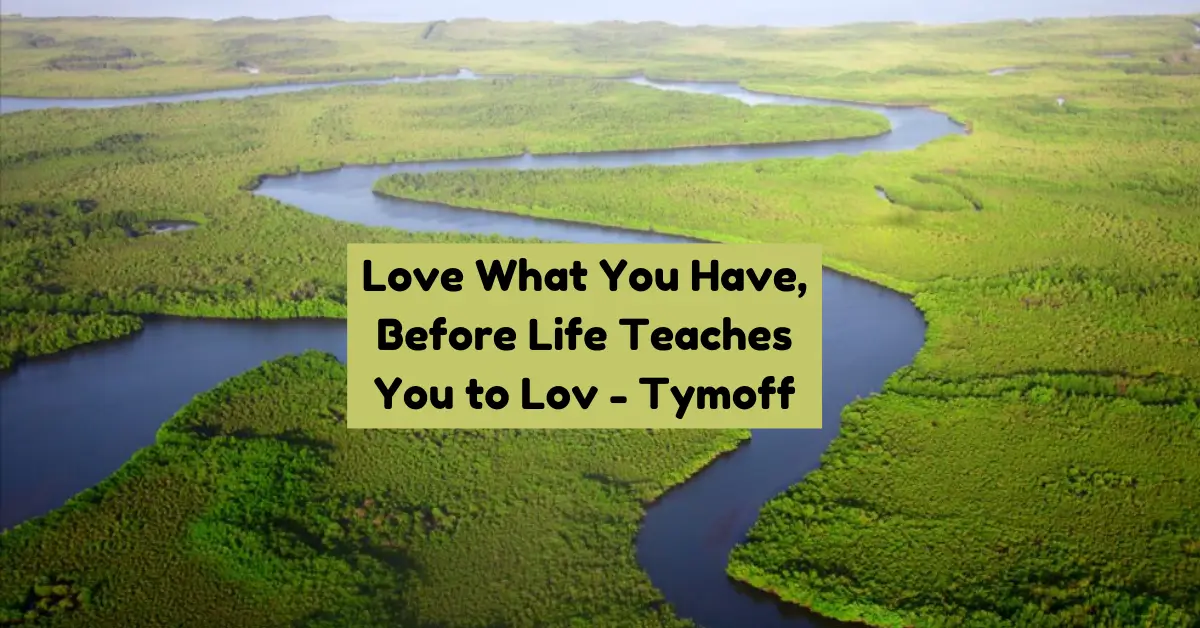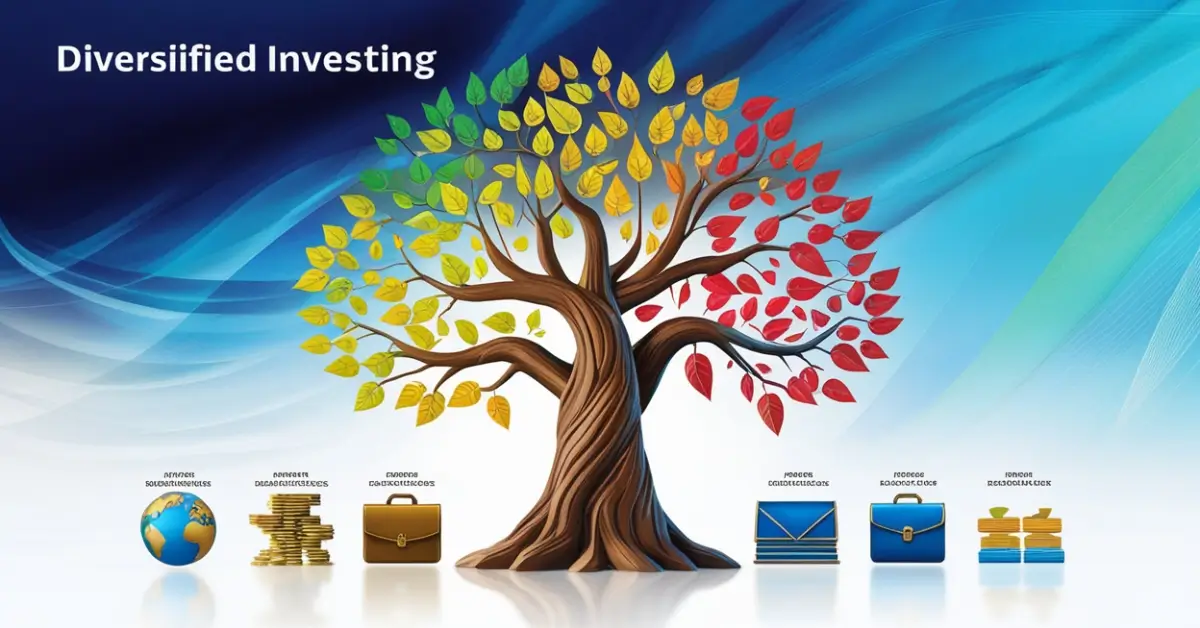In our fast-paced world, it’s easy to lose sight of the blessings right in front of us. “Love what you have, before life teaches you to love” is a powerful quote by Tymoff that serves as a reminder to appreciate and cherish the present. Gratitude is not just about saying “thank you” but about deeply feeling appreciation for the little things that make life beautiful.
This article delves into the significance of “love what you have, before life teaches you to lov – Tymoff”, exploring how gratitude can enhance emotional well-being, strengthen relationships, and foster a mindset of mindfulness and fulfillment. By cultivating gratitude, we learn to live fully in the present, savoring every moment.
Love What You Have, Before Life Teaches You to Love – Tymoff
Tymoff’s quote speaks to the heart of human nature. Often, people only realize the value of what they had once it’s gone. This mindset shift from yearning for what’s missing to appreciating what’s present is critical for a life of fulfillment. The phrase “before life teaches you” hints at the inevitable lessons of loss, hardship, and change, which often force us to recognize the worth of things we previously overlooked. Life’s challenges, in their harshness, teach us to be grateful for what remains.
The quote aligns with the philosophy of practicing gratitude—a concept explored deeply in positive psychology. Studies show that individuals who actively practice gratitude experience higher levels of happiness and life satisfaction. When we choose to “love what we have” instead of focusing on what’s missing, we gain emotional resilience, helping us better navigate life’s ups and downs.
The Importance of Gratitude in Everyday Life
Gratitude is more than just an emotion; it’s a mindset. In our daily lives, it can act as a buffer against stress, dissatisfaction, and negative thoughts. By focusing on what we have, whether it’s family, health, or personal achievements, we create a positive shift in our mental outlook. According to positive psychology, practicing gratitude rewires the brain, encouraging optimism and contentment.
Gratitude fosters emotional well-being, helping us cultivate a positive mindset. People who consistently appreciate the present enjoy stronger relationships and increased life satisfaction. Grateful individuals are more empathetic and forgiving, making them more resilient in the face of adversity. This practice isn’t just about feeling good but also about nurturing emotional health and improving mental resilience.
How to Cultivate Gratitude in Daily Practices
Gratitude is a habit that can be cultivated through simple, intentional practices. Start by keeping a gratitude journal where you list things you are thankful for every day. This practice allows for self-reflection and helps shift your focus from what’s lacking to what’s abundant in your life. Gratitude journaling encourages a daily routine of acknowledging the positive aspects of your day, no matter how small.

Another effective method is mindfulness meditation. By focusing on the present moment, we become more aware of the things we often overlook. Mindfulness practices help ground us in the now, helping us better appreciate the simple joys of life. These practices, done regularly, enhance not only your emotional well-being but also contribute to long-term happiness.
The Consequences of Not Appreciating What You Have
Failing to appreciate what we have often leads to feelings of emptiness, dissatisfaction, and regret. When we focus too much on what we don’t have, we begin to believe that happiness lies in future achievements or material possessions. This “never enough” mentality can lead to chronic dissatisfaction, envy, and even depression. Without a gratitude mindset, individuals may feel unfulfilled, constantly chasing external validation.
Moreover, neglecting gratitude can strain relationships. When we take the people in our lives for granted, we lose out on meaningful connections. Failing to express appreciation may cause misunderstandings, frustration, and emotional distance in relationships. Recognizing and celebrating what you have now fosters deeper bonds and stronger emotional ties with others.
Also Read: I Fear No One, But Respect Everyone. – Tymoff
Mindfulness and Present Moment Awareness
Mindfulness teaches us to be fully present in the moment, helping us appreciate life as it unfolds. By practicing mindfulness, we learn to quiet the distractions of life and focus on the here and now. This is closely linked to gratitude, as it enhances our awareness of the beauty around us that we often take for granted.
Present moment awareness strengthens gratitude by sharpening our focus on the details we often overlook. Mindfulness practices—such as deep breathing, guided meditation, or simply taking a moment to appreciate your surroundings—allow us to live more fully. By integrating mindfulness with gratitude, we can enrich our daily lives, building emotional resilience and inner peace.
The Emotional and Professional Impact of Gratitude
Gratitude doesn’t just benefit personal relationships and mental health; it also has significant implications for professional growth. In the workplace, a grateful mindset can boost job satisfaction, improve team dynamics, and increase productivity. Employees who feel appreciated by their colleagues and superiors are more motivated, leading to better performance and creativity.
Emotionally, gratitude reduces anxiety, stress, and depression. When we actively focus on what’s going well, we minimize the impact of negative experiences. This positive mental framework increases resilience, making it easier to bounce back from challenges, both personally and professionally.
How to Overcome Obstacles to Gratitude
It’s not always easy to feel grateful, especially during difficult times. Stress, loss, or disappointment can cloud our ability to recognize the good in life. Overcoming these obstacles requires intentional practice. Start by reframing negative situations. Even in adversity, there are lessons to be learned and small blessings to be appreciated.
Another way to overcome obstacles is by seeking professional help through counseling or gratitude meditation. Working with a therapist or coach who understands positive psychology can help shift your mindset and develop long-term strategies for maintaining gratitude, even when times are tough.
The Ripple Effect of Gratitude on Relationships and Community
Gratitude is contagious. When we express appreciation, it fosters kindness and empathy, strengthening relationships. In families, showing gratitude creates deeper emotional connections. Similarly, in communities, a culture of gratitude promotes cooperation, trust, and support.
The ripple effect of gratitude extends beyond personal relationships. Communities that practice gratitude are more cohesive and resilient. Acts of kindness inspired by gratitude contribute to a positive social environment, where people feel more connected and valued.
Building a Gratitude Habit for Long-Term Fulfillment
Building a gratitude habit requires consistency. Whether through gratitude journaling, meditation, or simply taking a moment each day to reflect, developing a routine ensures that gratitude becomes second nature. The long-term benefits of this habit include increased happiness, stronger relationships, and a more positive outlook on life.
Consistency is key to experiencing the lasting effects of gratitude. Over time, these small daily practices accumulate, creating a profound shift in your mental and emotional state. As the habit strengthens, you’ll find yourself more at peace with the present and more hopeful for the future.
Living in the Present: How to Practice Mindfulness
Living in the present is the essence of mindfulness. Mindfulness practices, such as deep breathing and meditation, help ground you in the now, allowing you to fully experience life as it happens. By paying attention to your thoughts, feelings, and surroundings, you become more aware of the many blessings in your life.

Mindfulness and gratitude go hand in hand. Both encourage a focus on the present moment, reminding us that happiness is not found in future goals but in appreciating what we have right now. By cultivating mindfulness, we nurture gratitude and create space for deeper joy and fulfillment.
Teaching Gratitude to Children and Others
Gratitude is a value that can be taught. By modeling gratitude in your own life, you can teach children and others around you the importance of appreciating what they have. Encourage children to express gratitude through words, actions, and journaling. This fosters a mindset of abundance from a young age.
Teaching gratitude creates a ripple effect, inspiring others to adopt a more grateful approach to life. Whether in the workplace, family, or community, showing appreciation sets a powerful example. By spreading gratitude, you contribute to a culture of kindness and empathy.
How Gratitude Can Improve Mental Health and Career Growth
Gratitude is a powerful tool for mental health. Numerous studies show that practicing gratitude can reduce symptoms of depression, anxiety, and stress. When we focus on the good in our lives, we naturally shift away from negative thought patterns. This has a profound effect on emotional well-being, boosting overall happiness.
Gratitude also plays a role in professional success. Employees who feel appreciated perform better, and those who practice gratitude in the workplace experience higher job satisfaction. Gratitude fosters positive relationships at work, leading to improved collaboration and career growth.
Reflecting on Past Losses to Appreciate the Present
Losses, while painful, teach us valuable lessons about the fleeting nature of life. Reflecting on past losses can serve as a powerful reminder to appreciate what we have now. It’s through loss that we often come to realize the significance of the people, opportunities, and experiences we once had.
By reflecting on these moments, we learn to live more fully in the present, savoring each experience and relationship. This reflection fosters a deep sense of gratitude for what remains and motivates us to cherish the present.
Simple Ways to Stay Grateful Every Day
Staying grateful doesn’t have to be complicated. Simple practices like saying “thank you,” keeping a gratitude journal, or taking a few minutes each day to reflect on what’s going well can make a huge difference. Even small gestures of appreciation can shift your mindset and create a more positive outlook.
Gratitude meditation is another powerful tool for maintaining gratitude. By focusing on the things you’re thankful for, you reinforce positive emotions, creating a sense of peace and fulfillment. These simple practices can be incorporated into daily routines, making gratitude a natural part of your life.
Quick Facts
- Quote Origin: The quote “Love what you have, before life teaches you to love” is attributed to Tymoff, emphasizing gratitude and mindful appreciation.
- Key Concept: It reminds us to appreciate what we already have, avoiding regrets when life changes unexpectedly.
- Main Themes: Gratitude, mindfulness, emotional well-being, and the importance of living in the present.
- Scientific Support: Positive psychology studies show that practicing gratitude can improve mental health and enhance relationships.
- Daily Application: This mindset can be incorporated through gratitude journaling, mindfulness practices, and self-reflection.
- Impact: Grateful living leads to emotional fulfillment, stronger relationships, and a more positive outlook on life.
Final Thoughts
Tymoff’s quote, “Love what you have, before life teaches you to love,” serves as a powerful reminder to appreciate life’s blessings in real time. Gratitude has a transformative impact on emotional well-being and relationships, providing long-term fulfillment.
Incorporating gratitude into daily habits, like mindful reflection and journaling, nurtures personal growth and fosters stronger connections with others. By valuing the present, we avoid the regret of taking our lives for granted. Gratitude, in this sense, becomes a path to deeper emotional and professional success.
FAQs
What does the quote “Love what you have, before life teaches you to love” by Tymoff mean?
The quote emphasizes appreciating what you already possess before life’s challenges or losses make you realize its value.
How can I practice gratitude daily?
Simple practices like gratitude journaling, reflecting on daily blessings, or engaging in mindfulness meditation can foster a grateful mindset.
What are the benefits of living with gratitude?
Gratitude enhances emotional well-being, improves relationships, strengthens mental health, and leads to professional and personal growth.
Why is mindfulness important in practicing gratitude?
Mindfulness allows you to stay present and aware, helping you appreciate life’s blessings without being distracted by past regrets or future worries.
How can I teach gratitude to my children?
Encourage them to express what they are thankful for, model gratitude in your own behavior, and involve them in gratitude journaling or mindfulness activities.










